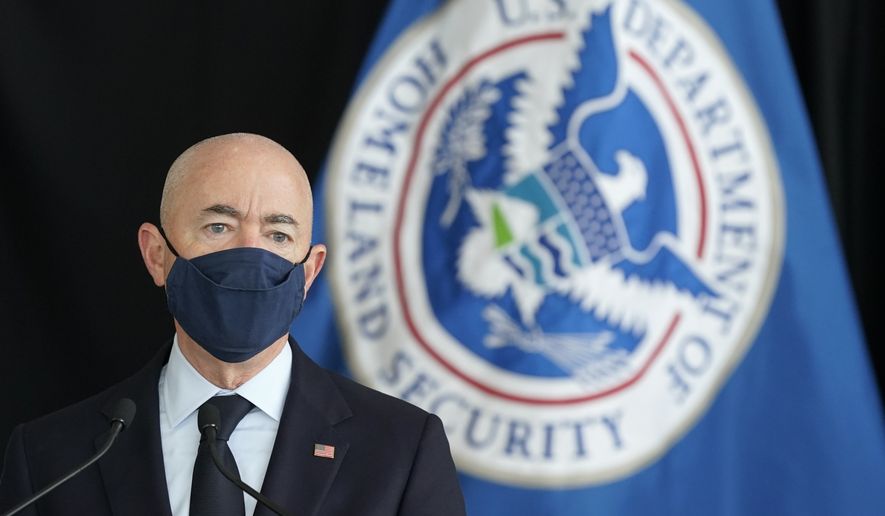Homeland Security is moving to cut questions about gang affiliation from the application migrants file to get green cards, in a change that one former employee says could mean dangerous criminals will have an easier time getting through the process.
Rob Law, a former chief of policy and strategy at U.S. Citizenship and Immigration Services, revealed the planned changes Thursday, saying it appears to be part of the Biden team’s attempt at erasing the get-tough approach of the previous administration.
“The biggest beneficiaries of that ‘compassion’ are apparently the most violent and dangerous aliens in the country,” said Mr. Law, who is now at the Center for Immigration Studies.
At issue is what’s known as the I-485, the form filed by those seeking to adjust their status to become lawful permanent residents or green card holders — the key step on the path to citizenship.
In the Trump years, questions were added asking applicants if they are, or ever were, part of a criminal association — i.e., a gang.
Immigration officers can take that answer into account when deciding whether to grant the green card, though gang membership is not an automatic disqualifier.
USCIS, the Homeland Security agency that handles legal immigration cases, said it hasn’t made any final decisions.
“Updates to USCIS policies or procedures are publicly communicated in a timely manner through various outreach platforms,” the agency said.
The Washington Times has reviewed a document that does call for the deletion of Trump additions.
Mr. Law said the new Biden team at USCIS has deemed the gang-related questions to be “politically motivated.”
But Mr. Law, who served during the Trump years, says the questions were developed with career staff’s involvement and were based on a request from the Justice Department.
“The Biden administration appears unconcerned that the absence of gang information in the I-485 will allow bad actors to obtain green cards that would have been denied if only the adjudicator had the information,” Mr. Law concluded.
He said USCIS is aiming to revise the I-485 form next year.
Curtailing the ability to weed out gang members could be particularly problematic for this administration, given Homeland Security Secretary Alejandro Mayorkas’ past experience.
Mr. Mayorkas oversaw the creation of the Deferred Action for Childhood Arrivals (DACA) program for “Dreamers” in 2012, which because of the way it was drafted granted tentative legal status to more than 2,100 gang members.
The situation was driven home by the 2015 murder of four people in North Carolina, which authorities laid at an undocumented immigrant who’d had gang ties but was approved for DACA anyway.
USCIS admitted it should not have approved the application.
Immigrant-rights activists, though, argue gang membership has been misused to target undocumented immigrants who shouldn’t be deported.
The Trump administration sought to deport a DACA recipient because of alleged gang ties, based on a tattoo and statements that he’d gone to school with gang members and that he’d prefer to be placed with Mexicans in detention.
Federal courts blocked that effort, pointing to the man’s own denials and finding the evidence for his gang affiliations was weak.
A group of House Democrats, led by Rep. Alexandria Ocasio-Cortez, wrote to Mr. Mayorkas earlier this month decrying the gang label, saying it gave Homeland Security the power to target people based on “arbitrary and racist factors.”
• Stephen Dinan can be reached at sdinan@washingtontimes.com.




Please read our comment policy before commenting.